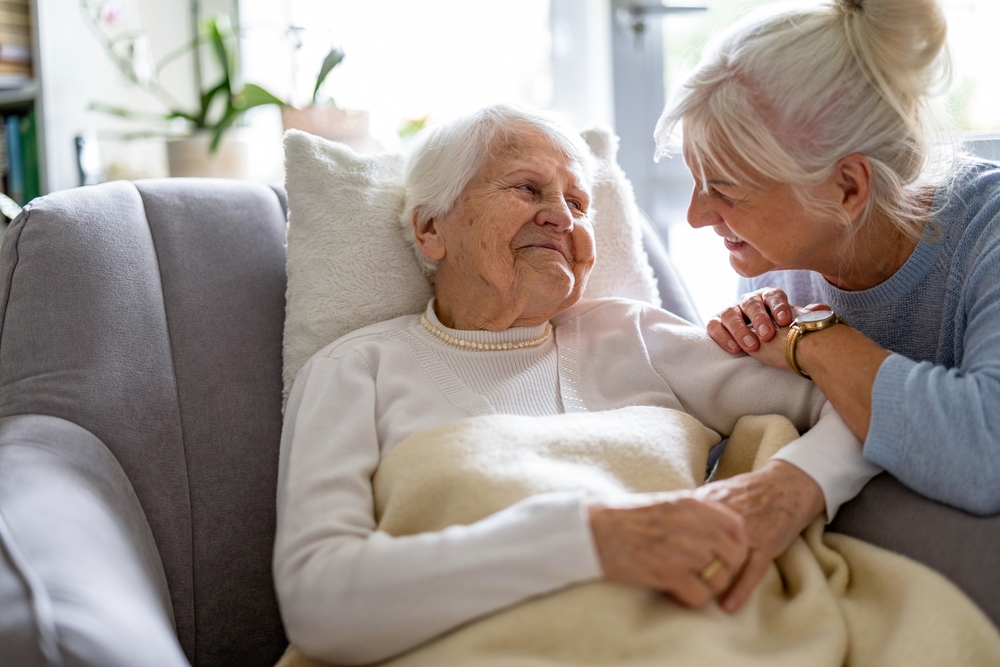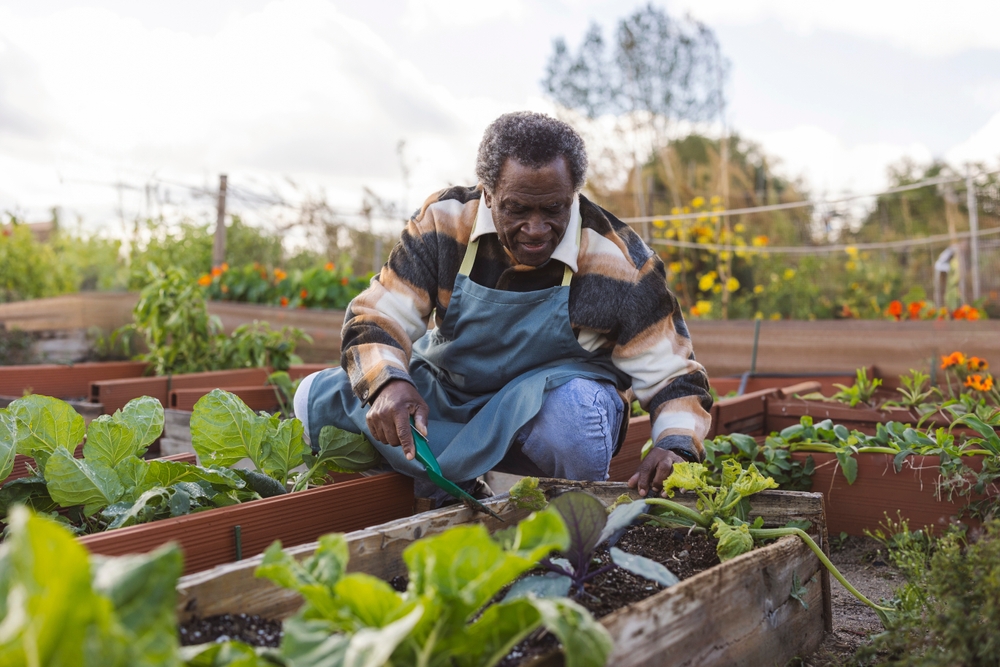Make an Appointment
Caring for an ageing loved one can be a rewarding yet challenging experience. Aged care caregivers often face significant physical, emotional, and financial burdens that can lead to stress, burnout, and diminished quality of life. Recognising and addressing these challenges is essential, not only for the wellbeing of the caregiver but also for ensuring that seniors receive the compassionate, high-quality care they deserve.
In this blog, we explore research-backed strategies and practical interventions that support caregivers in aged care. We highlight how a multidisciplinary approach, including services offered by allied health professionals, can empower caregivers to maintain their own health and resilience, ultimately enhancing the overall care network.

Understanding the Challenges Faced by Aged Caregivers
The Multifaceted Burden of Caregiving
Caregivers in aged care shoulder a variety of challenges that can affect their overall health:
Emotional Strain:
Constant caregiving responsibilities, coupled with witnessing the gradual decline of a loved one, can lead to feelings of sadness, anxiety, and isolation.
Physical Exhaustion:
The physical demands of caregiving, such as lifting, assisting with mobility, and managing daily activities, can result in fatigue and injury.
Financial Stress:
Many caregivers face financial challenges due to reduced work hours or job loss, adding another layer of stress.
Social Isolation:
The demanding nature of caregiving often limits social interactions, leading to feelings of loneliness and burnout.
Understanding these challenges is the first step towards developing effective support strategies that protect the caregiver’s health and wellbeing.

The Importance of Caregiver Support in Aged Care
Supporting caregivers is not a luxury, it’s a necessity. When caregivers are well-supported, they are better able to provide high-quality care, which in turn enhances the wellbeing of the seniors they serve.
Benefits of Effective Caregiver Support:
Improved Health and Wellbeing:
With proper support, caregivers can manage stress, maintain physical health, and prevent burnout.
Enhanced Quality of Care:
Healthy, supported caregivers are more patient, compassionate, and effective, leading to better outcomes for seniors.
Reduced Reliance on External Assistance:
Empowered caregivers can sustain a higher level of independence in their caregiving role, reducing the need for additional paid support.
Stronger Family Relationships:
When caregivers are supported, family dynamics improve, fostering a more harmonious and connected care environment.

Key Strategies for Effective Caregiver Support
A range of interventions can help alleviate the challenges faced by aged care caregivers:
1. Respite Care
Respite care services provide temporary relief to caregivers, allowing them to take a break and recharge. This can be delivered in-home, through day programs, or at specialised facilities.
Benefits:
- Reduces caregiver stress and burnout.
- Provides time for self-care and rejuvenation.
- Ensures that seniors continue to receive quality care during the caregiver’s break.
Learn more about respite care options at Carer Gateway.
2. Counselling and Psychological Support
Access to counselling services and support groups helps caregivers address the emotional and mental health challenges of their role. This can include one-on-one therapy, group sessions, or online support networks.
Benefits:
- Offers a safe space to express feelings and discuss challenges.
- Provides strategies for managing stress and emotional fatigue.
- Encourages the development of coping mechanisms to improve overall mental health.
For more on caregiver counselling and support, visit Beyond Blue.
3. Educational Programs and Training
Educational sessions and training workshops equip caregivers with the skills needed to manage complex care tasks. This can include techniques for safe patient handling, managing medications, and understanding ageing-related health issues.
Benefits:
- Improves confidence in caregiving abilities.
- Reduces the risk of caregiver injury.
- Enhances the overall quality of care provided to seniors.
Explore caregiver training resources at Australian Carers Association.
4. Peer Support Networks
Connecting with other caregivers through support groups and online communities can provide invaluable emotional support and practical advice.
Benefits:
- Fosters a sense of community and shared experience.
- Provides practical tips and strategies from those in similar situations.
- Reduces feelings of isolation and promotes well-being.
Find more about peer support networks at Carer Gateway.
5. Practical Assistance and Home Modifications
Allied health professionals, particularly occupational therapists, can assess the home environment and recommend modifications to reduce caregiver strain. This may include installing grab bars, improving lighting, and organising furniture to create safer spaces.
Benefits:
- Enhances safety and reduces the risk of accidents.
- Eases the physical demands of caregiving.
- Supports greater independence for both the caregiver and the senior.
For more on home modifications for safety, visit NDIS – Accessible Home Modifications.
How Allied Health Teams Enhance Caregiver Support
A coordinated, multidisciplinary approach can significantly enhance caregiver support. When services from various allied health professionals are integrated, caregivers receive:
Unified Treatment Plans:
Consistent, comprehensive strategies that address both the needs of the senior and the caregiver.
Streamlined Communication:
Seamless collaboration among professionals ensures that caregivers receive clear, consistent advice.
Holistic Support:
Integrated care addresses the physical, emotional, and practical aspects of caregiving, reducing overall stress and improving quality of life.
Learn more about our integrated allied health services by visiting the Physio Inq website.

Frequently Asked Questions
What are the primary challenges faced by aged care caregivers?
Caregivers often experience physical exhaustion, emotional stress, financial strain, and social isolation due to the demanding nature of caregiving.
How can respite care benefit caregivers?
Respite care offers temporary relief, allowing caregivers to rest and rejuvenate, which can reduce stress and prevent burnout.
What support is available for caregiver mental health?
Counselling services, support groups, and educational programs are available to help caregivers manage stress, build coping strategies, and maintain their mental well-being.
How do allied health professionals assist with caregiver support?
Allied health professionals provide tailored interventions, from home safety assessments and adaptive equipment recommendations to personalised exercise programs, all of which help reduce the overall burden on caregivers.
Where can I find additional resources for caregiver support?
Resources are available through organisations like Carer Gateway, Beyond Blue, and the Australian Carers Association, which offer comprehensive support and advice for caregivers.

Conclusion
Supporting caregivers is essential for ensuring that aged care remains effective and compassionate. By embracing a range of strategies, including respite care, counselling, educational programs, peer support, and practical home modifications, caregivers can manage the physical, emotional, and logistical challenges of their role. A coordinated, multidisciplinary approach from an integrated allied health team ensures that both seniors and their caregivers receive the support they need to thrive.

Take The Next Step
If you or someone you care for is looking for comprehensive caregiver support in aged care, contact us today to learn more about our services. For more information on our comprehensive allied health offerings, please explore:

Date Published: Tuesday, April 1, 2025
Locate a Aged Care Exercise Physiology
Service Near me
Get the experience & convinence you deserve to support your or a loved one's allied health needs.
Our Aged Care Exercise Physiology team are currently serving & taking appointments in the following states and regions in Australia:
Need to get into direct contact with ur Client Services team? We're all ears. Call our team directly on 1300 731 733








